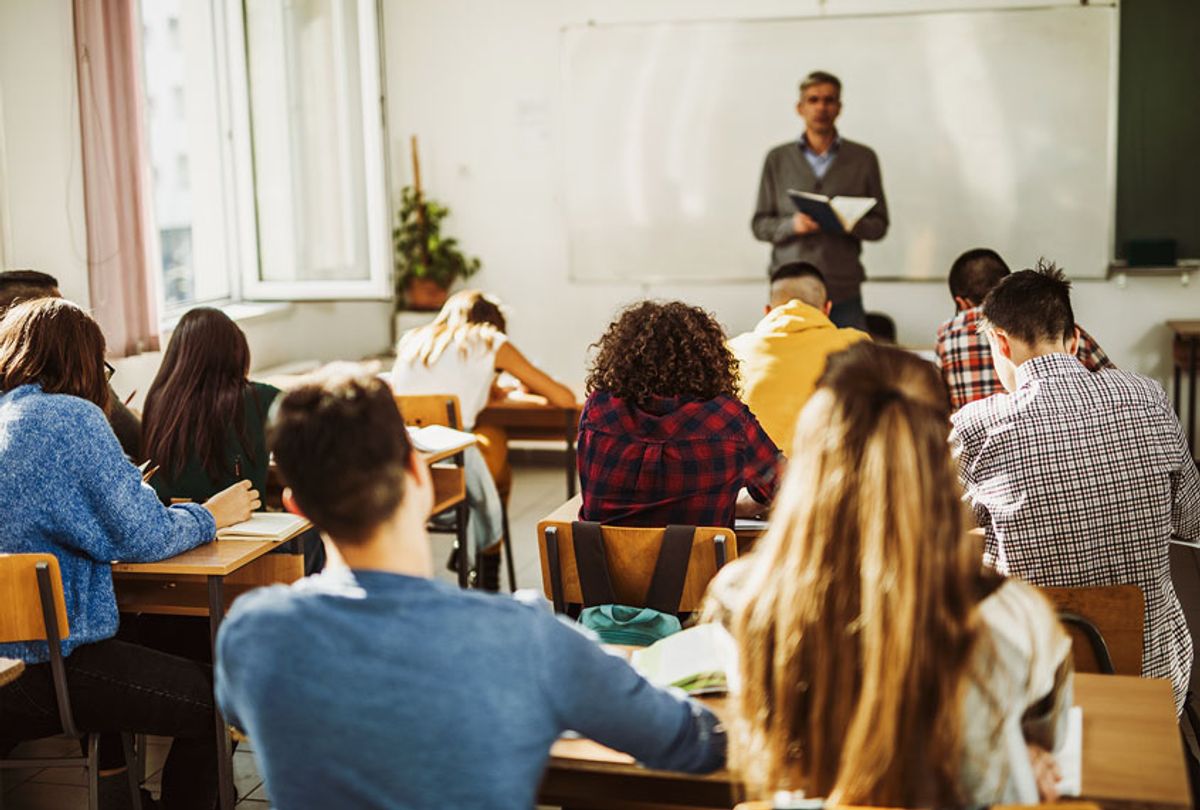Boost Your Child’s Confidence with Primary Science Tuition Singapore
Boost Your Child’s Confidence with Primary Science Tuition Singapore
Blog Article
Exploring the Various Mentor Strategies in Primary Science Education And Learning Today
The landscape of key scientific research education is progressing, with numerous teaching strategies acquiring importance in modern class. Inquiry-based knowing, hands-on experiments, and the assimilation of technology are redefining exactly how instructors involve young minds. In addition, joint strategies and distinguished guideline are being utilized to deal with the diverse requirements of trainees, improving both involvement and understanding. As we check out these techniques, inquiries arise about their efficiency and the ramifications for future instructional techniques. What might these changes in approach mean for the next generation of learners?
Inquiry-Based Discovering
Inquiry-Based Discovering (IBL) is a pedagogical method that motivates trainees to check out scientific concepts via doubting, investigation, and hands-on experimentation. This method stresses the function of trainees as active participants in their learning, advertising critical thinking and analytical skills. By involving with real-world concerns, students end up being curious and motivated, which boosts their understanding of clinical concepts.
In IBL, teachers work as facilitators, assisting pupils as they browse their queries rather than providing information straight. This student-centered method allows for distinction, accommodating numerous finding out styles and rates. Pupils establish abilities in developing hypotheses, designing experiments, and assessing data, which are essential for scientific literacy.
Furthermore, IBL fosters cooperation among students, urging them to share findings and ideas. This collective inquiry promotes social abilities and a sense of neighborhood within the class. Additionally, the procedure of inquiry motivates strength, as pupils discover to welcome failure as a stepping rock towards understanding.
Hands-On Experiments
Hands-on experiments are an important part of effective science education and learning, complementing the principles of inquiry-based discovering. These experiments permit students to engage directly with scientific ideas, cultivating a much deeper understanding through experiential knowing. By manipulating materials and observing results, young students can realize abstract theories in substantial ways.
Such activities promote important reasoning and analytic abilities, as pupils hypothesize outcomes, conduct experiments, and evaluate results. This procedure encourages them to ask questions, fine-tune their understanding, and create a scientific way of thinking. Hands-on experiments can be tailored to diverse understanding styles, ensuring that all students have the possibility to involve meaningfully with the material.
In addition, hands-on experiments usually urge cooperation among peers, advertising teamwork and interaction abilities. Operating in groups makes it possible for pupils to share concepts, talk about findings, and gain from one another, which enhances their overall instructional experience.
Including hands-on experiments into the main science curriculum not just enhances the learning setting however also cultivates a long-lasting rate of interest in scientific research. By proactively joining their education and learning, trainees are most likely to establish a passion for clinical query that extends past the class.

Modern Technology Combination
Incorporating innovation right into main scientific research education has ended up being significantly necessary in cultivating student engagement and enhancing finding out results. The usage of electronic devices, such as interactive simulations, digital labs, and instructional software, provides students with possibilities to discover scientific principles in innovative ways. These sources help with a much deeper understanding of complex topics by permitting students to visualize and manipulate variables that would certainly be not practical in a typical class setting.
Moreover, modern technology assimilation urges individualized learning experiences. Students can proceed at their very own speed, revisiting difficult concepts through multimedia resources, which provide to various discovering styles. This adaptability not only sustains private growth yet additionally grows a sense of freedom in learners.
Additionally, modern technology functions as a bridge to real-world science, connecting pupils with present research and professional contributions. Accessibility to clinical journals and online databases broadens trainees' perspectives on scientific query and fosters crucial believing skills.
Collaborative Learning
Collective learning plays a crucial role in key scientific research education by cultivating teamwork and interaction skills amongst students. This strategy encourages students to collaborate, share knowledge, and participate in problem-solving, which improves their understanding of clinical ideas. By taking part in group tasks, students discover to express their ideas, pay attention to diverse point of views, and bargain services, every one of which are important abilities in both real-world and academic contexts.

Study shows that collective learning can lead to increased motivation and involvement in science topics, as pupils discover pleasure in common experiences (primary science tuition Singapore). Additionally, this approach prepares students for future joint ventures, outfitting them with the abilities necessary for reliable teamwork in college and professional environments. Eventually, embracing collective understanding in primary science education and learning can substantially improve the knowing experience and promote a deeper understanding of scientific inquiry
Separated Guideline

Differentiated instruction can show up in numerous ways, such as varying the web content, processes, or products of understanding. As an example, instructors may make use of tiered tasks that offer varying levels of complexity, allowing trainees to operate at their particular preparedness degrees. Furthermore, versatile organizing techniques can promote cooperation among pupils with various capabilities, fostering peer learning.
Evaluation plays more tips here a crucial function in this method, as it informs instruction and aids instructors recognize each student's one-of-a-kind requirements. Developmental assessments, such as observations and tests, can guide educators in adjusting their strategies to boost discovering end results. primary science tuition Singapore. Ultimately, by carrying out distinguished direction in key science education and learning, educators can cultivate an extra efficient and equitable discovering atmosphere, equipping all pupils to reach their full potential in understanding scientific sensations
Conclusion
In recap, the varied teaching methods in primary scientific research education and learning, including inquiry-based understanding, hands-on experiments, modern technology combination, joint knowing, and differentiated direction, jointly contribute to a more reliable knowing environment. These techniques promote vital thinking, analytic abilities, and a deeper understanding of clinical principles. By applying these approaches, educators can produce appealing and helpful class that attend to the different needs of trainees, inevitably fostering a lifelong rate of interest in scientific research and boosting academic success.
Inquiry-Based Learning (IBL) is an instructional method that urges trainees to check out clinical principles with wondering about, examination, and hands-on testing.Collaborative discovering plays an important function in main science education by cultivating teamwork and communication abilities amongst pupils.Research study shows that collective learning can lead to increased motivation and engagement in scientific research topics, as trainees discover satisfaction in common experiences.In fostering an inclusive knowing environment, separated direction arises as a crucial Your Domain Name technique to suit the diverse needs and capabilities of pupils in key science education and learning. Ultimately, by executing differentiated direction in key scientific research education and learning, teachers can grow a much more efficient and fair understanding setting, equipping all pupils to reach their complete possibility in comprehending scientific sensations.
Report this page